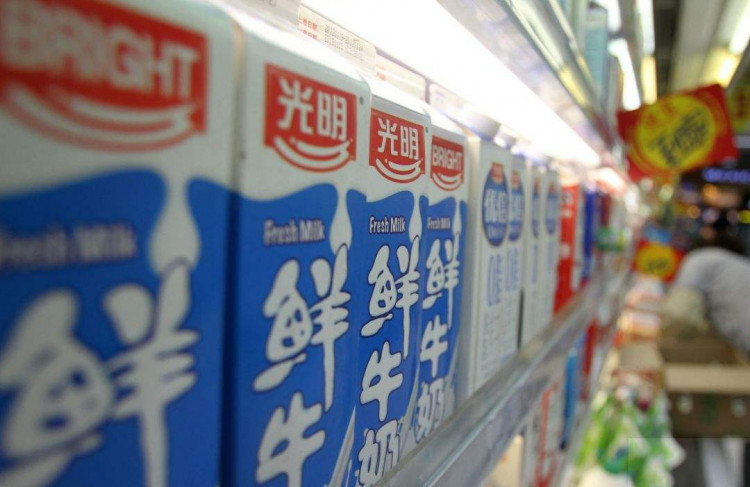China's listed state-owned dairy company, Bright Dairy & Food Co. Ltd., was fined 300,000 yuan ($44,790) for presenting an inaccurate territory map in a recent advertisement video, according to a file released by Shanghai Market Supervision Bureau on Sunday.
Strategic Mapping Failure
The top market regulator said the advertisement video entitled "Bright Dairy's strategic plan from 2016 to 2020" failed to make a comprehensive and accurate display of China's territory, which was a violation of China's advertising laws.
The announcement didn't detail the exact issue or the distribution source of the advertisement.
Bright Dairy responded by placing the blame on a technical video-production mistake and not reflecting the company's intent and said the issue "exposed management-level problems in the company." It claimed to have removed the video in question from the internet and would make an investigation to avoid similar mistakes.
A similar case happened to renowned Japanese retail company MUJI in September of 2019, when it advertised a jogging event on social media platform Weibo. They referred to an historical district of Shanghai as "French Concession" in a description on a jogging-path road map that cost the company 300,000 yuan in fines. The Shanghai top market regulars said the wording "damaged the nation's dignity."
Fresh Prince Lost Throne
Established in 1996 and listed in 2002, Bright Dairy used to rank as the top producer nationwide in the refrigerated fresh milk sector, in aspects of production volume, revenue and market share. Its revenue reached 5.02 billion yuan in 2002, while its rivals Yili Group and Mengniu Dairy reported 4.01 billion yuan and 459 million yuan, respectively.
When ultra-high-temperature (UHT), a processing method that allows storing shelf-stable milk at room-temperature, was introduced to the industry, both Yili and Mengniu adopted the process to become more competitive. Meanwhile, Bright Dairy was slow on transforming its refrigerated fresh milk to UHT milk production.
Compared to its two rivals having direct access to sources based in Inner Mongolia, Bright Dairy relied on factories in eastern-China regions to locally purchase raw milk which increased its operation costs. On top of that, food packaging and processing company Tetra Pak formed alliances with Yili and Mengniu allowing UHT milk to compete strongly against fresh milk.
In August, 2004, China's government issued a policy to prohibit using the word "fresh" in any products that undertook thermal processing. Despite some public's controversial opinions, the policy came into effect in November 2006. Bright Dairy, which marketed with the slogan "seven-day fresh milk," started a downward profit slide after not being able to tout its strength in fresh products.
Seeking A Bright Future
Finally in January 2007, the government officially abandoned the policy and Bright Dairy could legally use the word "fresh" in marketing.
The company pioneered a new dairy sector with room-temperature Momchilovtsi yogurt in 2009 and earned many positive comments. But by 2013, Mengniu and Yili were catching up with the trend and selling similar products with more effective marketing and advertisement.
The company took another major hit in July of 2015 as China's anti-graft watchdog investigated the former head of the company, Guo Benheng, for serious disciplinary violations.
As of 2018, Yili and Mengniu saw 6.44 billion yuan and 3.043 billion yuan in margin profits, while Bright Dairy trailed in third place, with 342 million yuan, a drop of 44.87% year-on-year, hitting the historical low since 2008. Meanwhile, the company saw middle-management employees depart and its stock plunged to its lowest limit. In sharp contrast, the nationwide dairy industry saw a 4.4% year-on-year increase in dairy products.
As of the first half of 2020, Bright Dairy reported 12.146 billion yuan in revenues, with a 308 million yuan profit.





